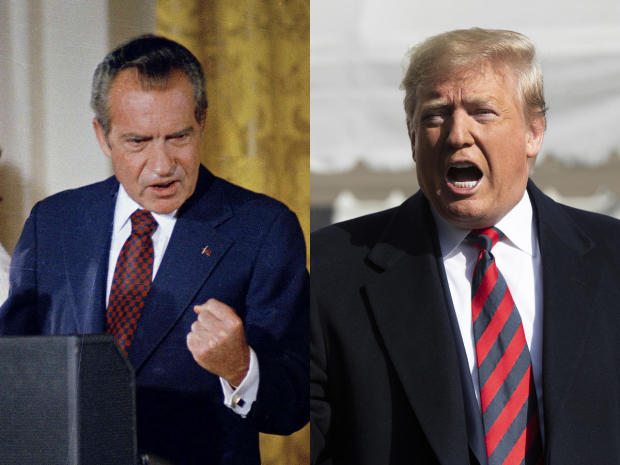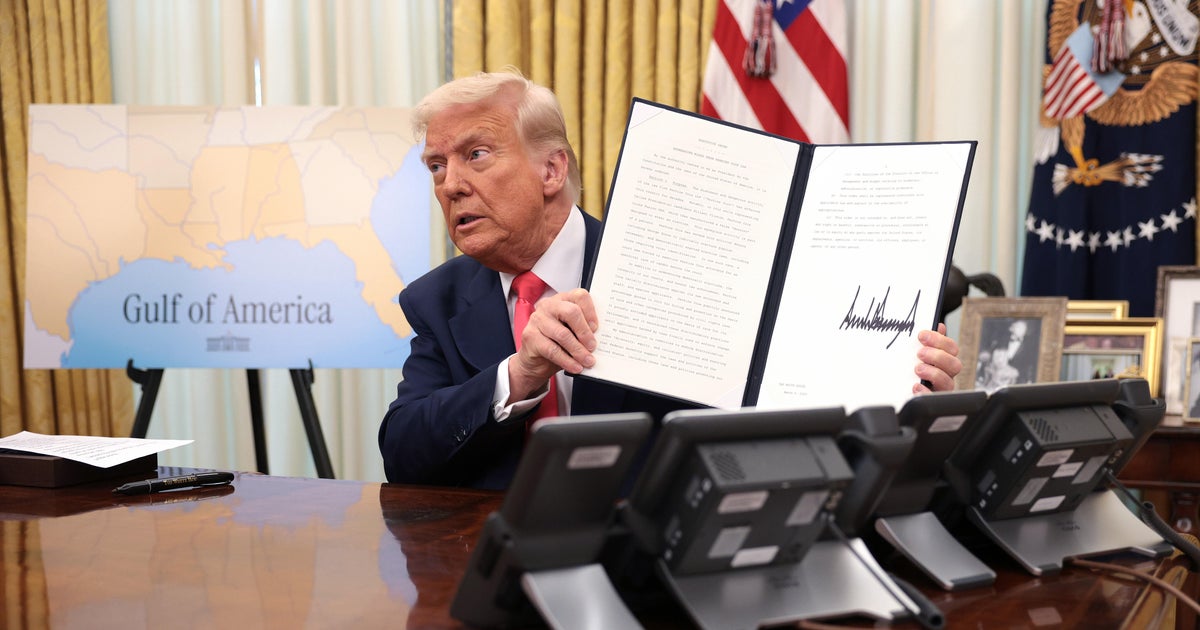Comparing the Trump impeachment probe to Nixon's
The impeachment inquiry against President Donald Trump enters a dramatic new phase this week, with the first public hearings scheduled to begin Wednesday.
Only the fourth president to face a congressional impeachment inquiry, Mr. Trump's congressional probe has some similarities to that which President Richard Nixon faced over the Watergate scandal, which led to his resignation in 1974. Nixon was accused of abusing his office, the same as President Trump.
But there are major differences, besides the differences in both the institutions of government and the media covering them. The Nixon investigation played out slowly and in public, and his legal team had a chance to mount a defense along the way, even though that defense eventually wilted. President Trump's legal team has had limited access to evidence obtained so far in closed proceedings.
Around both presidents swirled accusations of abuse of power and obstruction of justice. Possibly the biggest difference of all, said CBS News chief Washington correspondent Major Garrett, is that Nixon resigned before the House passed any articles of impeachment; Mr. Trump will not.
Shortly before President Nixon resigned, CBS News' Walter Cronkite said all of Washington anticipated the final act of the Watergate drama: "He is quitting, the ultimate victim of the Watergate scandal that destroyed his administration."
In the face of impeachment pressure now, President Trump sounds defiant and unmovable: "They want to impeach me because it is the only way they are going to win," he said October 21. "They got nothing!"
The Watergate investigation began in the Senate with Democrat Sam Ervin pleading for White House cooperation. "We stand to discuss the matter with you at your convenience," Ervin said.
Today's investigation has House members passing by microphones offering partisan play-by-play. "Things have just gone from very, very bad, to much, much worse," said Representative Adam Schiff, Chairman of the House Intelligence Committee leading the impeachment investigation.
Representative Jim Jordan, a Republican just named to the Intelligence Committee, defended Mr. Trump, calling the investigation into the Ukraine extortion plot a "ridiculous charade that the Democrats are putting him through – you can understand why the president's frustrated."
When President Nixon's impeachment got to the House, more than 400 lawmakers — a bipartisan landslide — voted to authorize the inquiry, led by New Jersey's Peter Rodino.
This time, the impeachment inquiry vote was plainly partisan — almost all Democrats in favor, all voting Republicans opposed.
Two Nixon special prosecutors, Archibald Cox and Leon Jaworski, led the initial Watergate investigations. Evidence was then submitted to Congress. To slow the probe, Nixon fired Cox, creating a debilitating political firestorm.
House Democrat Adam Schiff is the lead investigator now, drawing Mr. Trump's outrage.
"What crooked Schiff is doing, he's a corrupt politician," Mr. Trump said Friday.
Nixon's impeachment focused on a politically-motivated burglary, other political espionage, and a systemic government cover-up. The story emerged over many months.
The current impeachment process, dealing with Ukraine and allegations of dangling military aid for perceived political favors, has moved much faster.
"The greatest difference is that there has been very little evidentiary work that has been done," said CBS News legal analyst Jonathan Turley. "You know the Democrats are going from zero to 60 in about 100 feet."
Turley also said the range of Ukraine-linked misdeeds against Mr. Trump appears smaller than the allegations that doomed Nixon. "It appears they are going to go forward largely on the phone call and the Ukrainian controversy," he said. "If they do that, it will be the narrowest impeachment in history, and they will have one of the most limited evidentiary records in history."
As far as the political implications for Democrats who are investigating a Republican president, Garrett said, "Speed matters. If you move too quickly and the public cannot catch up with the facts you're presenting, you lose, at least you lose in terms of public opinion being moved by the evidence you present the public.
"Also, Democrats have a high standard to meet here. Impeachment is not 'I dislike the president'; it means the president has done something, or will continue to do something, that's a threat to the administration of the office as we understand it. That's a high bar.
"The evidence has to be presented, the public has to see it and evaluate it, before you can move. Democrats at this pace seem to be moving that process much more rapidly than at least previous impeachments have."





